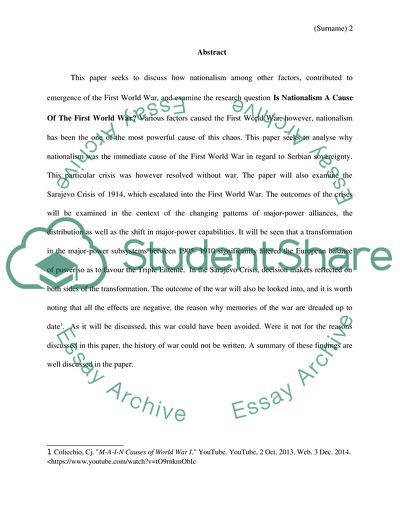Cite this document
(Is Nationalism a Cause of the First World War Essay Example | Topics and Well Written Essays - 4750 words - 1, n.d.)
Is Nationalism a Cause of the First World War Essay Example | Topics and Well Written Essays - 4750 words - 1. https://studentshare.org/history/1843863-to-what-extend-was-nationalism-a-cause-of-the-first-world-war
Is Nationalism a Cause of the First World War Essay Example | Topics and Well Written Essays - 4750 words - 1. https://studentshare.org/history/1843863-to-what-extend-was-nationalism-a-cause-of-the-first-world-war
(Is Nationalism a Cause of the First World War Essay Example | Topics and Well Written Essays - 4750 Words - 1)
Is Nationalism a Cause of the First World War Essay Example | Topics and Well Written Essays - 4750 Words - 1. https://studentshare.org/history/1843863-to-what-extend-was-nationalism-a-cause-of-the-first-world-war.
Is Nationalism a Cause of the First World War Essay Example | Topics and Well Written Essays - 4750 Words - 1. https://studentshare.org/history/1843863-to-what-extend-was-nationalism-a-cause-of-the-first-world-war.
“Is Nationalism a Cause of the First World War Essay Example | Topics and Well Written Essays - 4750 Words - 1”. https://studentshare.org/history/1843863-to-what-extend-was-nationalism-a-cause-of-the-first-world-war.


